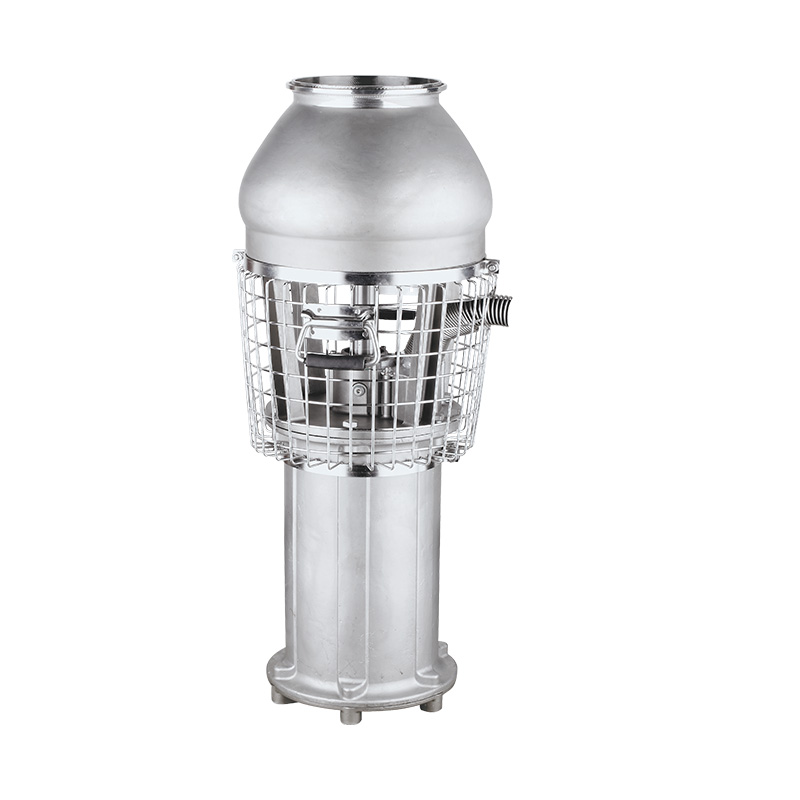Viscosity, the measure of a fluid's resistance to flow, directly affects the pumping characteristics of any centrifugal pump. For a High Temp Centrifugal Micro Electric Pump, which typically operates at small scales and within precise tolerances, even minor changes in viscosity can impact efficiency, pressure output, and fluid movement speed.

When a fluid has low viscosity—such as water or certain light oils—the High Temp Centrifugal Micro Electric Pump can easily maintain a steady, continuous flow. The impeller can rotate at design speeds without encountering substantial resistance, allowing for efficient energy conversion from electrical input to kinetic energy in the fluid.
Conversely, as viscosity increases, more energy is required to move the fluid through the pump. The internal components of the High Temp Centrifugal Micro Electric Pump may experience greater friction, possibly resulting in a reduction in flow rate and head pressure. High-viscosity fluids can also increased heat buildup, which is a relevant consideration for a pump already operating in high-temperature environments.
The High Temp Centrifugal Micro Electric Pump is specifically designed to operate with fluids at elevated temperatures. Interestingly, as temperature increases, the viscosity of many liquids tends to decrease. This natural relationship can be beneficial for pump performance. For example, a fluid that starts with moderate viscosity at room temperature might become significantly less resistant at 80°C or higher, allowing the High Temp Centrifugal Micro Electric Pump to function closer to its specifications.
This temperature-viscosity relationship is particularly useful in systems where precise thermal management is required. In such setups, the High Temp Centrifugal Micro Electric Pump can maintain a consistent flow rate as the fluid heats up, avoiding pressure spikes or mechanical strain. However, the design must still accommodate variations in viscosity across a range of temperatures, which is why material choice and internal geometry of the pump are key to performance stability.
The internal structure of a High Temp Centrifugal Micro Electric Pump typically includes a miniature impeller, corrosion-resistant housing, and thermally stable seals. These features are chosen to manage fluids with varying viscosities without compromising functionality.
The impeller design is particularly important. Blades are often shaped and spaced to minimize resistance while ensuring effective fluid movement even when viscosity increases. The motor in a High Temp Centrifugal Micro Electric Pump is usually built to maintain torque under slight load variations, which is especially helpful in compensating for thicker fluids.
Pump manufacturers may also offer models with customizable flow rates and inlet/outlet sizes to suit specific applications where the viscosity of the working fluid is known. These adjustments enable the High Temp Centrifugal Micro Electric Pump to serve specialized needs in laboratory equipment, microreactors, or heated liquid transfer systems.
Different industries rely on the High Temp Centrifugal Micro Electric Pump for distinct functions. In electronics cooling, low-viscosity coolants are typically used to ensure fast circulation and minimal thermal resistance. In this context, the pump's ability to sustain high flow rates at consistent pressure is critical.
In contrast, laboratory or pharmaceutical settings may involve the handling of heated oils or viscous solvents. The High Temp Centrifugal Micro Electric Pump in these cases needs to accommodate slower-moving fluids without motor strain or loss of flow accuracy. By adjusting operational speed and monitoring thermal loads, operators can effectively use these pumps across a wide viscosity spectrum.
Yes. Maintenance of the High Temp Centrifugal Micro Electric Pump can vary based on the viscosity of the fluids it handles. High-viscosity fluids may leave more residue within the pump housing or impeller, requiring more frequent cleaning or flushing. Lubrication systems within the pump may also need to be inspected more regularly when handling such fluids to ensure smooth operation.
Fortunately, the materials used in High Temp Centrifugal Micro Electric Pump designs are resistant to thermal and chemical degradation, making them suitable for repeated exposure to fluids with a wide range of properties. Preventive maintenance tailored to fluid characteristics helps extend the lifespan of the pump while maintaining efficiency.